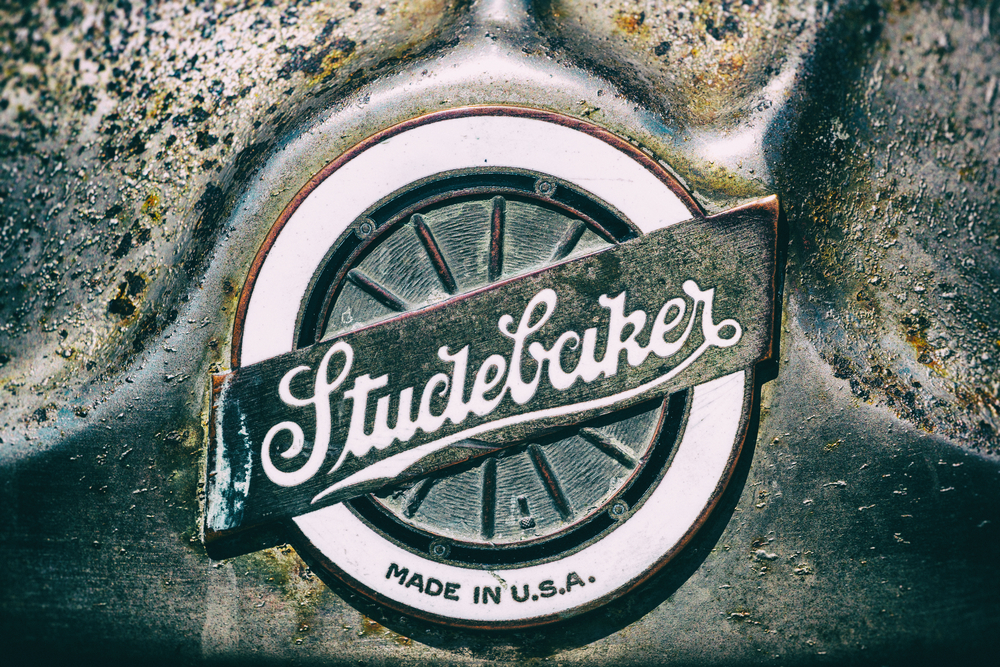Iconic Car Brands: A Legacy of Innovation, Design, and Passion
Iconic Car Brands: A Legacy of Innovation, Design, and Passion cars.truckstrend.com
In the vast landscape of automotive history, certain names rise above the rest, becoming more than just manufacturers of vehicles. They transform into "Iconic Car Brands" – symbols of innovation, engineering prowess, distinctive design, and a profound cultural impact. These brands don’t just sell cars; they sell dreams, heritage, performance, and an enduring lifestyle. Understanding what makes a brand iconic and appreciating their journey is key to grasping the very essence of automotive excellence and its deep relevance in our lives. From the roar of a high-performance engine to the quiet hum of an electric luxury cruiser, iconic car brands represent the pinnacle of human ingenuity and our relentless pursuit of mobility, beauty, and speed.
What Forges an Icon? The Hallmarks of Iconic Car Brands
Iconic Car Brands: A Legacy of Innovation, Design, and Passion
An iconic car brand isn’t born overnight; it’s forged over decades, sometimes over a century, through a consistent dedication to specific principles that resonate deeply with consumers and enthusiasts alike. Several key elements contribute to a brand’s iconic status:
- Legacy and Heritage: A rich history steeped in pioneering achievements, racing victories, or groundbreaking societal impact provides a deep foundation. Brands that can trace their lineage back to the very dawn of motoring or have consistently pushed boundaries for generations carry an undeniable weight of heritage.
- Innovation and Engineering Prowess: Iconic brands are often at the forefront of technological advancement. They introduce features, engines, safety systems, or manufacturing processes that become industry standards, demonstrating a relentless commitment to pushing the envelope of what’s possible.
- Distinctive Design Language: An iconic car is instantly recognizable, even without its badge. Whether it’s the elegant lines of a luxury sedan, the aggressive stance of a sports car, or the rugged utility of an off-roader, iconic brands possess a unique aesthetic DNA that evolves yet remains true to its core identity.
- Performance and Driving Experience: For many, the true test of an iconic brand lies in how its vehicles perform. This isn’t just about raw speed; it’s about the feel of the steering, the responsiveness of the engine, the comfort of the ride, and the overall emotional connection the driver experiences.
- Cultural Impact and Brand Story: Iconic brands transcend mere transportation to become part of popular culture. They appear in movies, inspire art, define eras, and even become aspirational symbols. Their stories, often intertwined with legendary figures or historical events, add layers of depth and allure.
- Exclusivity and Aspiration: While some iconic brands cater to the mass market, many foster a sense of exclusivity and aspiration. Owning a vehicle from such a brand is often seen as a statement of success, taste, or a passion for automotive excellence.

A Pantheon of Automotive Greats: Spotlighting Iconic Brands
Let’s delve into a few examples that embody the essence of iconic car brands, each with its unique contribution to automotive history and culture.
Mercedes-Benz: The Birth of the Automobile and Enduring Luxury
Often credited with inventing the automobile in 1886, Mercedes-Benz represents the pinnacle of luxury, engineering, and safety. Its three-pointed star symbolizes dominance over land, sea, and air, reflecting its founders’ ambitions. Mercedes-Benz cars are renowned for their robust build quality, pioneering safety features (like ABS and airbags), and a timeless design language that exudes sophistication. From the elegant S-Class sedan to the rugged G-Wagen, Mercedes-Benz has consistently set benchmarks in comfort, performance, and technological innovation, making it a symbol of prestige worldwide.

Ferrari: The Prancing Horse of Passion and Performance
More than just a car manufacturer, Ferrari is a legend. Founded by Enzo Ferrari in 1929 as a racing team (Scuderia Ferrari), it began producing road cars primarily to fund its racing ambitions. Every Ferrari is a testament to speed, exquisite design, and an unparalleled emotional driving experience. The iconic "Prancing Horse" badge evokes images of Grand Prix victories, limited-production masterpieces, and a passion for automotive artistry that few brands can match. Owning a Ferrari is not just about transportation; it’s about joining an exclusive club and experiencing pure, unadulterated automotive passion.
Ford: Democratizing Mobility and Shaping Industries
Henry Ford’s vision to put the world on wheels revolutionized society. The Model T, introduced in 1908, was the first affordable automobile for the masses, made possible by the pioneering use of the assembly line. Ford’s legacy extends beyond just mass production; it includes iconic vehicles like the Mustang, which created the "pony car" segment, and the F-Series trucks, which have been America’s best-selling vehicles for decades. Ford represents innovation in manufacturing, accessibility, and the spirit of American ingenuity, continually adapting to new eras while staying true to its roots of practical, reliable transportation.
Toyota: The Epitome of Reliability and Global Reach

While perhaps not as overtly glamorous as some European counterparts, Toyota’s iconic status stems from its unwavering commitment to quality, reliability, and efficiency. Pioneering lean manufacturing and the "Toyota Production System," Toyota transformed the global automotive industry. Its Corolla and Camry models are among the best-selling cars in history, synonymous with durability and value. Toyota has also led the charge in hybrid technology with the groundbreaking Prius and is a significant player in the future of hydrogen fuel cell vehicles. Toyota’s icon status is built on trust, innovation, and a relentless pursuit of perfection in mass-market vehicles.
Jeep: The Spirit of Adventure and Off-Road Capability
Born from a military necessity during World War II, Jeep quickly became a symbol of freedom, adventure, and go-anywhere capability. The original Willys MB defined the utility vehicle, and its descendants, particularly the Wrangler, continue to embody the brand’s rugged spirit. Jeep vehicles are designed to conquer challenging terrains, inspiring a lifestyle of exploration and outdoor adventure. Its unique seven-slot grille is instantly recognizable, representing a brand that has consistently delivered on its promise of unparalleled off-road prowess while evolving to meet modern demands for comfort and technology.
The Enduring Relevance and Future Trajectory of Iconic Brands
Iconic car brands face new challenges in the 21st century, from the shift towards electrification and autonomous driving to increasing demands for sustainability. Their enduring relevance lies in their ability to adapt without losing their core identity.
- Navigating Electrification: Iconic brands are investing heavily in electric vehicles (EVs), seeking to translate their signature performance, luxury, or utility into an electric format. The challenge is to maintain the "soul" of the brand in a silent, battery-powered world.
- Sustainability and Ethical Production: Consumers increasingly demand environmentally responsible manufacturing and supply chains. Iconic brands are responding by focusing on sustainable materials, energy-efficient production, and circular economy principles.
- Maintaining Brand Identity in a Changing World: As vehicles become more digitized and autonomous, the traditional driving experience might evolve. Iconic brands must find ways to retain the emotional connection and unique driving dynamics that define them, even as technology takes a more central role.
Practical Advice for Engaging with Iconic Brands
Whether you’re an aspiring owner, a lifelong enthusiast, or simply curious, here’s how to engage with iconic car brands:
- For Potential Buyers: Research is paramount. Understand the specific model’s history, common issues, maintenance costs, and value retention. Iconic cars can be significant investments, so thorough due diligence is crucial. Consider certified pre-owned options from dealerships for peace of mind.
- For Enthusiasts: Dive deep into their history. Read books, watch documentaries, visit museums, and attend car shows. Understanding the context of their innovations and their impact on society enriches the appreciation. Join owner clubs and online communities to connect with like-minded individuals.
- Appreciating the "Why": Don’t just look at the car; understand the philosophy behind it. Why did the engineers choose that engine? What inspired that design? What cultural moment did it define? This deeper understanding reveals the true genius and enduring appeal of iconic brands.
Concluding Summary
Iconic car brands are much more than just companies that build vehicles; they are custodians of history, pioneers of innovation, and architects of desire. Their continued existence is a testament to their unwavering commitment to excellence, their ability to adapt, and their deep connection with the human spirit of exploration, achievement, and passion. As the automotive world rapidly transforms, these brands will continue to inspire, reminding us that true icons are built on a foundation of timeless values and an unyielding pursuit of automotive perfection.
Representative Pricing for Iconic Car Brands
It’s important to note that "Iconic Car Brands" themselves do not have a single price. Their vehicle lineups span a vast range, from accessible mass-market models to ultra-exclusive, high-performance machines. The table below provides representative price ranges for common models from some iconic brands to give an illustrative idea of their market positioning. Prices are estimates and can vary significantly based on trim, options, region, and market conditions.
| Brand | Representative Model (Entry-Level/Popular) | Estimated New Price Range (USD) | Representative Model (High-End/Specialty) | Estimated New Price Range (USD) |
|---|---|---|---|---|
| Mercedes-Benz | C-Class Sedan | $48,000 – $65,000 | S-Class Sedan / AMG GT Sports Car | $120,000 – $200,000+ |
| Ferrari | Roma | $225,000 – $275,000 | SF90 Stradale / Limited Editions | $500,000 – $1,000,000+ |
| Ford | Ford Escape / F-150 Truck | $30,000 – $70,000 | Mustang Shelby GT500 / Raptor R | $80,000 – $120,000+ |
| Toyota | Corolla / RAV4 | $23,000 – $40,000 | Land Cruiser / GR Supra / Crown | $60,000 – $90,000+ |
| Jeep | Compass / Cherokee | $29,000 – $45,000 | Wrangler Rubicon 392 / Grand Wagoneer | $85,000 – $110,000+ |
Frequently Asked Questions (FAQ) about Iconic Car Brands
Q1: What exactly makes a car brand "iconic"?
A1: An iconic car brand is one that has achieved widespread recognition, admiration, and a lasting impact on automotive history and culture. This is typically due to a combination of factors like pioneering innovation, distinctive design, exceptional performance, a rich heritage, and significant cultural influence.
Q2: Are iconic cars always expensive?
A2: Not necessarily. While many iconic luxury and performance brands command high prices (e.g., Ferrari, Rolls-Royce), brands like Ford and Toyota are iconic precisely because they made quality vehicles accessible to the masses. Even within a high-end brand, entry-level models are significantly less expensive than their flagship or limited-edition counterparts.
Q3: Do iconic brands still innovate, or do they just rely on their past?
A3: Iconic brands are constantly innovating. To maintain their status and relevance, they must adapt to new technologies (like electrification and autonomous driving), evolving consumer demands, and environmental regulations. Their innovation often builds upon their heritage, translating core brand values into modern solutions.
Q4: How can I own a piece of an iconic car brand without breaking the bank?
A4: There are several ways:
- Used Market: Many older models from iconic brands can be purchased at more affordable prices, though maintenance costs should be considered.
- Entry-Level Models: Brands like Mercedes-Benz and BMW offer smaller, more affordable models (e.g., A-Class, 2 Series) that carry the brand’s prestige.
- Merchandise/Memorabilia: For enthusiasts, collecting brand-related merchandise, models, or art is a way to connect without the cost of ownership.
- Experience: Attending car shows, brand events, or even renting an iconic car for a day can provide a taste of the experience.
Q5: What is the future for iconic car brands in an era of electric and autonomous vehicles?
A5: The future is about adaptation. Iconic brands are heavily investing in EV platforms, developing unique electric powertrains, and integrating advanced autonomous features. The challenge is to retain their distinctive brand identity, driving dynamics, and emotional appeal as the industry shifts, ensuring their legacy continues in a new technological landscape.





